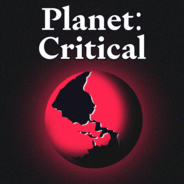According to the laws of physics, the economy can only sustain itself by growing. So how bound are we by the laws of thermodynamics?Professor Tim Garrett, atmosphere scientist at the University of Utah, argues we’re completely bound by those laws. He has modelled how the behaviour of snowflakes and clouds can be used to predict energy consumption and GDP, bridging the gap between economic theory and the natural world. Planet: Critical is a resource for a world in crisis, supported by people like you. Join the community by becoming a subscriber today.Tim’s research is nothing short of fascinating; this is a mind-bending hour you won’t regret. Listen to the episode here or catch it on Apple or Spotify.Read more of Tim’s work here.You can also follow Planet: Critical on Youtube and support the project on Patreon where I upload a bonus video every Saturday.© 2022 Rachel Donald Get full access to Planet: Critical at www.planetcritical.com/subscribe

PolitikWirtschaftTalk
Planet: Critical Folgen
Planet: Critical is the podcast for a world in crisis. We face severe climate, energy, economic and political breakdown. Journalist Rachel Donald interviews those confronting the crisis, revealing what's really going on—and what needs to be done. www.planetcritical.com
Folgen von Planet: Critical
229 Folgen
-
Folge vom 07.01.2022The Thermodynamics of Collapse | Tim Garrett
-
Folge vom 31.12.2021One year of Planet: CriticalWelcome to this special episode of Planet: Critical where we journey from the podcast’s humble beginnings to what it is today, and what I hope it will evolve into.None of this would be possible without you all and so I thank you endlessly for your support and encouragement. It’s wonderful to witness a community coalesce around the podcast and the information my incredible guests provide us, and I’m so looking forward to what we will continue learning, and where it will take us. Knowledge is the only renewable fuel we have and I’m humbled to play a small part in spreading it as far and wide as possible. I wouldn’t be getting very far without you all, especially given how terrible I am at promoting the show. So to those of you who spread the word every week, and to the others who chose a paid subscription—thank you, I’m touched you find value in my work.I hope you all enjoy whatever plans you have for this December 31st, and here’s to a 2022 filled with critical thinking and vision.Cheers,RachelPlanet: Critical is a resource for a world in crisis, supported by people like you. Join the community by becoming a subscriber today. Get full access to Planet: Critical at www.planetcritical.com/subscribe
-
Folge vom 17.12.2021Common Sense vs Economics | Joshua FarleyDid you know that four years of studying mainstream economics at university has such a profound impact on students that their value systems change? And not for the better.Economic theory affects the very fabric of human society, and the dominant neoliberal model is at the root of many of the crises we face. Assuming human nature is fundamentally selfish has created a terrible feedback loop of individualism, precarity and abuse. Ecological economists are fighting back with new models, models they believe are more in line with humankind’s long history of collaboration.Planet: Critical is a resource for a world in crisis, supported by people like you. Join the community by becoming a subscriber today.Joshua Farley is a Professor of Ecological Economics at the University of Vermont. His research focuses on designing an economy capable of balancing what is biophysically possible with what is socially, psychologically and ethically desirable. This episode is a big picture conversation about the roots of the climate and social crises. We discuss human values—and common sense—and how to reimagine an economics which will allow the best of human nature to triumph. Listen to the episode here or catch it on Apple or Spotify.Read more of Joshua’s work here.You can also follow Planet: Critical on Youtube and support the project on Patreon where I upload a bonus video every Saturday.© 2022 Rachel Donald Get full access to Planet: Critical at www.planetcritical.com/subscribe
-
Folge vom 10.12.2021Save The Forests To Save The Planet | Anastassia MakarievaWhat’s theoretical physics got to do with trees? Everything.Life on this planet is in grave danger. While life does what it can to self-regulate (breaking the second law of thermodynamics to do so), when environments become disturbed beyond repair, the “biota” breaks down exponentially. To physicist Anastassia Makarieva, this is the reality of climate change.Planet: Critical is a resource for a world in crisis, supported by people like you. Join the community by becoming a subscriber today.Anastassia has dedicated her life to understanding the biota and, more specifically, how the world’s forests regulate not just themselves but the water system of the entire planet. Alongside her colleagues, Anastassia is desperately trying to raise awareness of the dangers of disturbing the world’s forest, especially the Boreal forest, which despite being the largest on the planet is often forgotten about. She says stopping logging overnight would have the biggest impact on reducing climate change. So why isn’t anyone listening? Listen to the episode here or catch it on Apple or Spotify.Read more of Anastassia’s work here and here.You can also follow Planet: Critical on Youtube and support the project on Patreon where I upload a bonus video every Saturday.© 2022 Rachel Donald Get full access to Planet: Critical at www.planetcritical.com/subscribe
